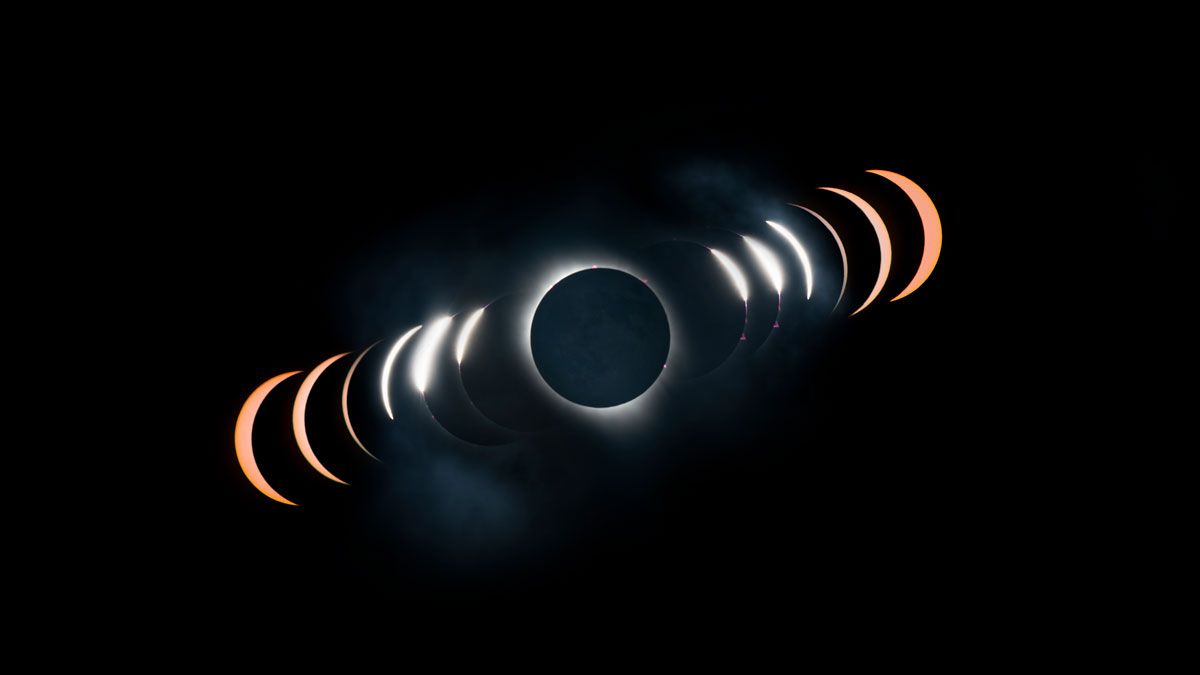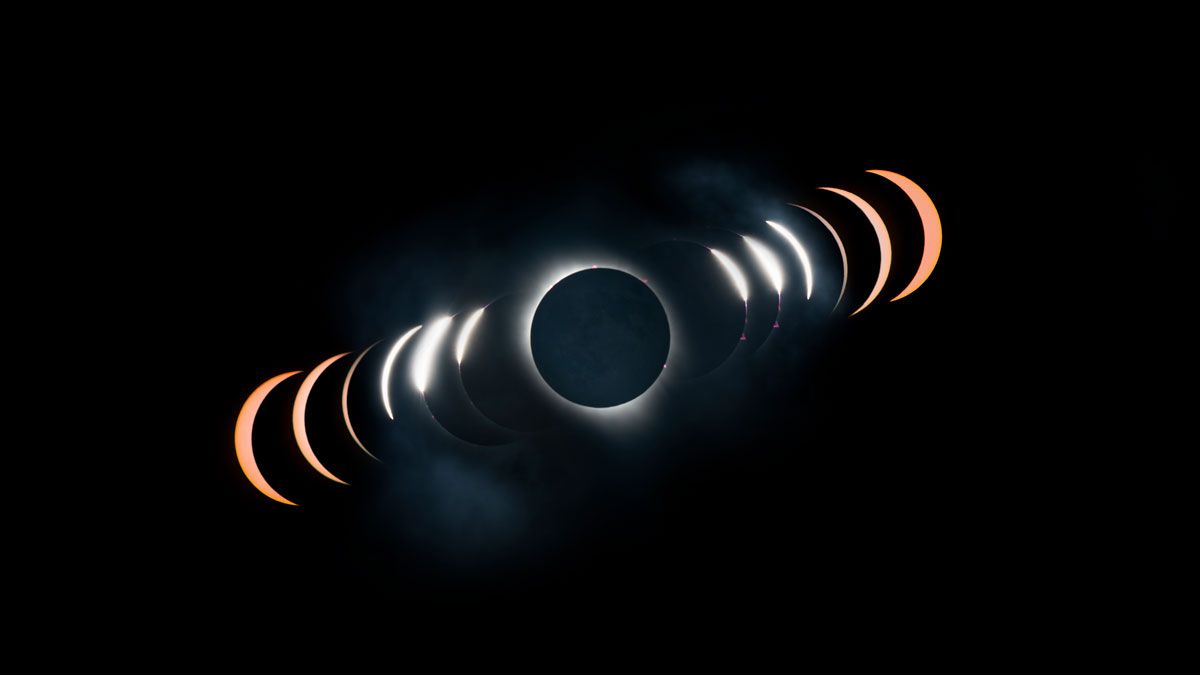Now Reading: The total solar eclipse 2024 tricked birds into singing a ‘false dawn chorus’
-
01
The total solar eclipse 2024 tricked birds into singing a ‘false dawn chorus’
The total solar eclipse 2024 tricked birds into singing a ‘false dawn chorus’


As the April 2024 solar eclipse crossed North America, humans weren’t the only ones affected by the dimming of the midday sun. A new study revealed that at least 29 bird species showed changes in their vocalizations before, during and after the eclipse. Some even burst into a “false dawn chorus” as full sunlight returned.
In the lead-up to the eclipse, educators at Indiana University (IU) in Bloomington, Indiana — which was located in the eclipse’s path of totality — brainstormed ways to get the public involved with eclipse-related science. They conceived of a mission to study how changes in light affect wild birds.
The team developed a free smartphone app called SolarBird to crowdsource observations all over North America. “Scientists can’t be in a thousand places at once,” IU Ph.D. student Liz Aguilar, who led the study, said in a statement. “The app gets around this problem by leveraging the public as scientists. It also encourages people to look around and listen, adding to the show in the sky.”
Users were asked to observe a bird in their location for 30 seconds before, during and after totality, checking boxes that indicated the birds’ behaviors (for instance, singing or flying). The results? More than 1,700 users contributed nearly 11,000 observations.
The team also deployed automated recorders around Bloomington to monitor bird vocalizations. Using the artificial neural network BirdNET, which powers the popular bird-identification app Merlin, researchers analyzed almost 100,000 vocalizations.
Ultimately, the team discovered that 29 of 52 of species of birds demonstrated vocal changes during the eclipse, though each species did not respond in the same way. For instance, of the 12 species that responded to totality, some fell silent while others sang more than usual.
The team noted that the strongest change in vocalization behavior occurred after totality, as the sun returned to its normal strength: 19 species engaged in a false dawn chorus, mimicking the usual birdsong they sing at sunrise.
“It’s crazy that you can turn off the sun, even briefly, and birds’ physiology is so tuned to those changes that they act like it’s morning,” said IU professor Kimberly Rosvall, who advises Aguilar. “This has important implications on the impact of urbanization or artificial light at night, which are much more widespread.”
The research was published in the journal Science on Oct. 9.
Stay Informed With the Latest & Most Important News
Previous Post
Next Post
-
 01Two Black Holes Observed Circling Each Other for the First Time
01Two Black Holes Observed Circling Each Other for the First Time -
 02From Polymerization-Enabled Folding and Assembly to Chemical Evolution: Key Processes for Emergence of Functional Polymers in the Origin of Life
02From Polymerization-Enabled Folding and Assembly to Chemical Evolution: Key Processes for Emergence of Functional Polymers in the Origin of Life -
 03Thermodynamic Constraints On The Citric Acid Cycle And Related Reactions In Ocean World Interiors
03Thermodynamic Constraints On The Citric Acid Cycle And Related Reactions In Ocean World Interiors -
 04Φsat-2 begins science phase for AI Earth images
04Φsat-2 begins science phase for AI Earth images -
 05Hurricane forecasters are losing 3 key satellites ahead of peak storm season − a meteorologist explains why it matters
05Hurricane forecasters are losing 3 key satellites ahead of peak storm season − a meteorologist explains why it matters -
 06Binary star systems are complex astronomical objects − a new AI approach could pin down their properties quickly
06Binary star systems are complex astronomical objects − a new AI approach could pin down their properties quickly -
 07Worlds Next Door: A Candidate Giant Planet Imaged in the Habitable Zone of α Cen A. I. Observations, Orbital and Physical Properties, and Exozodi Upper Limits
07Worlds Next Door: A Candidate Giant Planet Imaged in the Habitable Zone of α Cen A. I. Observations, Orbital and Physical Properties, and Exozodi Upper Limits


















